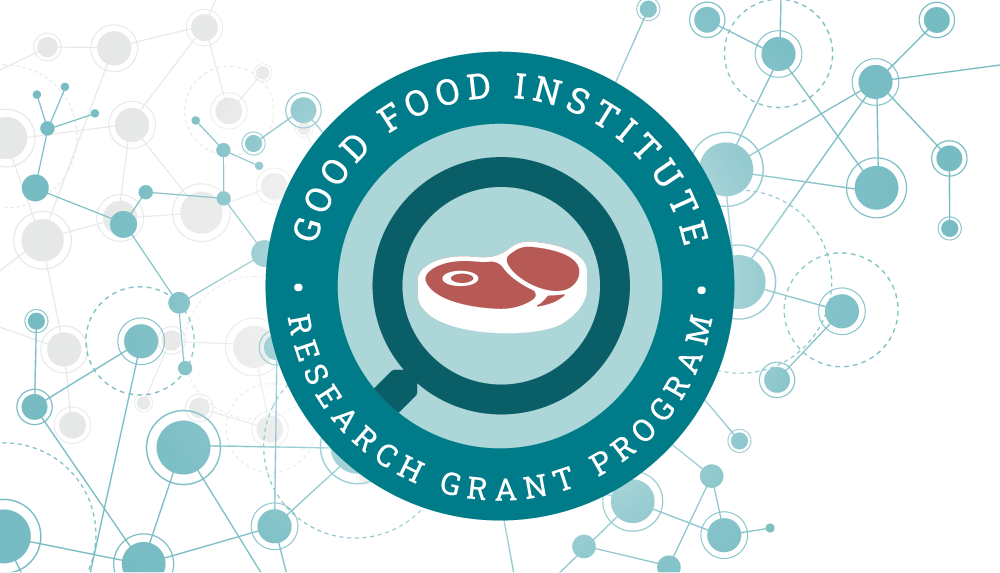GFI’s 2021 Competitive Research Grant RFP catalyzes science of whole-cut alt protein products

In our quest to create a sustainable, healthy, and just food system founded on alternative proteins, one diverse and popular product category remains elusive: structured, whole-cut meat and seafood.
This is the “whole-y” grail of alt protein science, if you will. Developing these products will bring us that much closer to sustainably meeting the global demand for meat.
But to achieve this, we need talented, passionate, pioneering scientists to create knowledge, materials, and technologies for producing whole-cut meat and seafood products made from alternative proteins. Our 2021 Competitive Research Grant request for proposals (RFP)—released today—is designed to catalyze this strategic step on the journey toward a safe and sustainable global food system. It focuses on addressing the scientific and technical barriers to producing whole-cut alternative protein meat products with the taste and price consumers demand.
Why focus on whole cuts?
One of the biggest white spaces across all three alternative protein pillars (plant-based, cultivated, and fermentation) is the knowledge and technology needed to produce thicker, three-dimensional meat products that biomimic animal products like steaks, chicken breasts, pork chops, and salmon filets. The market for whole-cut meat products is vast and currently underserved by alt proteins. Open-access research can enable the alternative protein industry to meet this demand faster than would happen with conventional market forces and siloed research efforts.
One of the alt protein industry’s greatest challenges
GFI’s Advancing Solutions for Alternative Proteins (ASAP) Initiative has identified pressing scientific and technological challenges facing the alternative protein industry. Many of the identified solutions directly contribute to our ability to produce whole-cut alternative meat products. Examples of potential research projects that would improve our ability to produce structured, three-dimensional meat and seafood include but are not limited to:
- Creation of scaffolding or 3D microenvironments enabling thicker cuts of structured alternative protein-based meat products, including scaffolds specifically tailored for seafood products;
- Novel manufacturing and texturization methods for scalably producing fibrous, meat-like structures from plant or fungal proteins;
- Processes to grow, structure, or formulate mixtures of cells, proteins, fats, or other cellular and molecular components to biomimic whole-cut animal meat products;
- Data on the optimal structure and function of plant-based proteins and ingredients for whole-cut meat products that could inform future breeding efforts and ingredient processing specifically for manufacturing of whole-cut products; and
- Mechanisms for encapsulating fats and integrating fatty tissues into protein-rich tissues for scalably manufacturing heterogeneous whole-cut meat products.
Why now?
Our current protein production methods are unsustainable, contributing to antibiotic resistance, food insecurity, and climate change. Alternative proteins present an opportunity to build a sustainable, resilient global food system. Despite exciting advancements in the alternative protein industry, the ultimate success of this sector depends heavily on continued research and technological development. Now in its third year, our Research Grant Program continues to adapt to the growing alternative protein research ecosystem. To expand scientific exploration of the alternative protein frontier, we continuously ask, “What’s next?” We then seed critical research that will address these novel and neglected research areas.
The alternative protein industry has made significant scientific strides in recent years to produce ground meat products from cultivated, plant-based, and fermentation-derived proteins. We are closer to having affordable, appetizing burgers, bratwurst, nuggets, meat pierogies, and fish balls that biomimic their animal-based counterparts. Researchers around the world are developing needed flavors, textures, ingredients, technologies, and processes that the private sector can commercialize. The journey isn’t complete by any means. But it is underway, and progress is accelerating.
Now is the time to build on this momentum and drive new research toward the creation of alternative protein pot roast, satay, fish & chips, fried chicken, yassa, and carne asada. Scientific breakthroughs enabling the production and commercialization of these products are a fundamental need for true “next generation” alternative protein meat and seafood. These whole cut products are mission-critical to create a sustainable, healthy, and just food system.
Why us?
As a nonprofit, the Good Food Institute (GFI) is uniquely positioned to empower high-quality research that will build the scientific foundation of the cultivated, plant-based, and fermentation-derived meat industries. Our philanthropically-funded research program answers fundamental questions that can spin off entire industries, inspiring additional research and creating new opportunities to sustainably feed the world.
Significant commercial momentum is driving R&D investment aimed at improving ground meat products that are already on the market. Far less commercial appetite exists for investing in solutions that may require years of research. Importantly, GFI can fund research that may be perceived as higher-risk or longer-term than what the industry is able to tolerate. We must invest now to catalyze this open-access foundational research that will plant the seeds for eventual commercialization.
GFI’s Research Grant Program is made possible by a select group of donors who have chosen to direct their philanthropic support to open-access research. Philanthropic support is vital to our mission. To discuss how you can be part of this transformative work with your gift or grant, please contact philanthropy@gfi.org.

